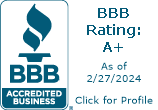 You’ve decided to sell your house on your own, and you realize there will be some costs involved. So, wisely, you’re now asking: “What should I budget for if I sell my house on my own in Connecticut?”
You’ve decided to sell your house on your own, and you realize there will be some costs involved. So, wisely, you’re now asking: “What should I budget for if I sell my house on my own in Connecticut?”
The answer may surprise you.
It is true that home prices are rising in quite a few markets nationwide. It may also be the case that your home has appreciated considerably over the years. But before you count your profits, you’ll need to factor in these obvious and not-so-obvious costs of selling your house.
What Should I Budget for if I Sell My House on My Own in Connecticut
Commission Fees
Let’s get this one out of the way right off the bat. A lot of sellers think that in a hot market they can sell a house themselves and thus avoid the standard commission fees. But the truth is otherwise. Even if you sell your house on your own, you still have to pay the buyer’s agent’s brokerage fees.
Repairs
Most buyers aren’t interested in a house that has problems – and most houses have some kind of issues. Most of the time, most sellers have to do some repairs before they put their house on the market. And if the maintenance has been allowed to lapse, these repair costs can be fairly substantial. A new roof, for example, can set you back by as much as $20,000.
Landscaping
Curb appeal is of utmost importance: it’s what gets potential buyers to stop and then come in the door. And landscaping is the number-one improvement that most enhances curb appeal. Don’t let potential buyers stop by your house and decide not to even go in because the exterior landscaping is in such poor shape! That will make the buyer’s assume that if the outside is not being taken care of, then odds are the inside isn’t either. The cost of a thorough, full-blown landscaping job performed by a professional landscaping service runs, on average, just a little over $3,000.
Staging and Photography
Many people – when asking, “What should I budget for if I sell my house on my own in Connecticut?” – often neglect to factor in this expense. But if you don’t want your house to sit on the market for months on end, you probably shouldn’t neglect staging and professional photography.
Staging involves setting up and arranging your home so that it appears as appealing and inviting as possible. And then to display the staging in online listings, which is where a large percentage of buyers begin their search, you will likely need some professional photos, ranging in cost from $500 to $1,000. Professional pictures are key in selling your house in these internet times. Most sellers do their initial searches online. Even if their agent sends them a property of interest, what do most people do first? They will glance through the pictures to see if it’s even something they want to look further into. Therefore, professional pictures and an online prescense are key in selling in any market.
Utilities
If you plan to move out of your current house into a new home, you can’t just shut the utilities off in the home you vacate and intend to sell. Buyers absolutely do not want to walk through a cold (or sweltering) and dark house. (Also keep in mind that if you turn off the electricity and air conditioning during the summer, you run a high risk of developing a mold problem.) So, at the least, you will need to keep the electricity on and probably the gas as well in the wintertime. If the house is one you’ve been living in, then you already know what it will cost you to keep the utilities on. A lot of this is simple common sense too. Buyers don’t want to walk through a freezing house in the winter. And if they do, they definitely wont spend the time walking through your house that they should because they will want to get out of there as fast as possible so they can get back to the heat of their cars. You want your house to feel inviting in all seasons. That means have the heat on in the winter for showings, and have the AC on in the summer months so that on a sweltering hot day, buyers can be comforted with the coolness of your house, and that makes a big differnce!!
Capital Gains Taxes
And then there are capital gains taxes. If your house has appreciated quite a bit, you may have to pay this tax (which is based on the difference between purchase and sale prices, minus the cost of documented improvements). There are, however, some pretty generous exemptions, but just bear in mind that Uncle Sam may take a cut.
So if you’re wondering, “What should I budget for if I sell my house on my own in Connecticut?” you now know the answer is . . . quite a lot, actually.

